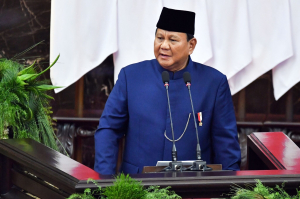Total sets IDR 3 billion Capex for infrastructure development
Construction firm PT Total Bangun Persada Tbk (TOTL) has set a Capital expenditure (Capex) for 2023 worth IDR 3 billion (US$ 197,706) to develop infrastructure.
Established in 1970 under the name PT Tjahja Rimba Kentjana Total, the company has since focused on building construction. In 1981, it became PT Total Bangun Persada before going public in 2006 with public ownership of 33.67%. The company has constructed some landmark buildings in Indonesia including the renovation of Grand Hotel Preanger in Bandung, the construction of Australian Embassy in
Jakarta and the construction project of Pakubuwono Menteng Apartement. Total has three subsidiaries, namely PT Total Persada Development and subsidiaries, PT Total Persada Indonesia and PT Total Pola Formwork.
Pursuing new contracts
Corporate Secretary Anggie Sanusi Sidharta said the company would use its 2023 Capex for development effort. "The company will use the IDR 3 billion Capex for IT equipment, IT software and project equipment," she said recently as quoted by kontan.co.id.
The 2023 Capex is still the same as in 2022 and will be allocated for the same needs.
Until the end of 2022, the company has received IDR 2.58 trillion contracts. The contracts included the construction of Waste Water Treatment Plant (IPAL) located at the Nusantara new capital's government center (KIPP), stage 5 of the Patimban Port Vehicle Terminal Development Project in Subang, West Java, and the Development of Fishery Port Infrastructure and Facilities at Daeo Majiko SKPT (integrated marine fisheries center) Morotai, North Maluku.
According to Sidharta, the company is optimistic to achieve its 2023 contract target worth IDR 2.6 trillion. Its optimism lies in its pipeline tendering project worth IDR 10 trillion, which is related to office buildings, industry, apartments, mixed-use buildings, hotels, data centers, educational buildings and hospitals.
Other contracts include a carry over project worth IDR 2.1 trillion and another new contract worth IDR 500 billion. The company aims to reach the target by pursuing aggressively with various other new projects through the tendering process.
"The company remains focused on its specialty as a premium class high-rise building contractor, keeping cash positive and implementing efficiency and optimizing performance and operational costs so that it remains sustainable," Sidharta said.
Total has also eyed an increasing target in revenue and profit for 2023 worth IDR 2.3 trillion and IDR 95 billion, respectively. These targets are higher than in 2022, which were IDR 2 trillion and IDR 75 billion, respectively. The increase is due to the higher inflation, rising price of materials, geopolitical issues and the 2024 General Elections.
Risks in construction industry
There are several risks in the construction industry that might affect Total's business, such as:
- Regulatory Risks: Indonesia has implemented the controversial Law No. 11/2020 on Job Creation, which has raised concerns in the construction industry. The law includes provisions on land acquisition, investment, labor and environmental protection, which may pose challenges for construction companies operating in the country.
- Financial Risks: The COVID-19 pandemic has affected the economy as well as the construction industry. The pandemic has caused delays in construction projects, supply chain disruptions and a decrease in demand for new construction. These factors can lead to increased financial risks for construction companies.
- Political Risks: Political instability can also pose a risk for the construction industry. In 2021, there were protests and social unrest in various parts of the country, which led to delays in construction projects or even damage to infrastructure. Moreover, the upcoming Indonesian presidential elections in 2024 may bring uncertainty and further political risks for the industry.
Tag
Already have an account? Sign In
-
Start reading
Freemium
-
Monthly Subscription
30% OFF$26.03
$37.19/MonthCancel anytime
This offer is open to all new subscribers!
Subscribe now -
Yearly Subscription
33% OFF$228.13
$340.5/YearCancel anytime
This offer is open to all new subscribers!
Subscribe now






